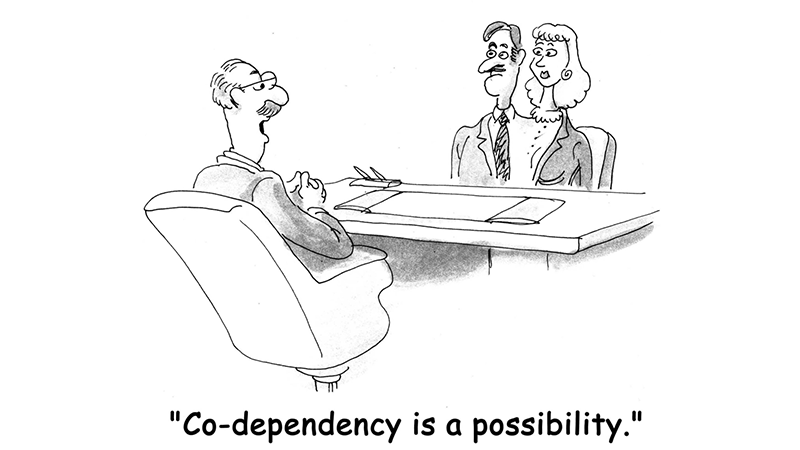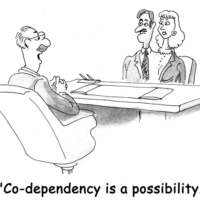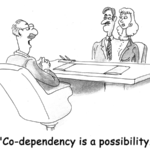Note: This is the second of a two-part series. Click here for part one
If you are codependent, you likely grew up with or had prolonged exposure to a set of oppressive rules which prevented the open expression of feelings, and which taught you to be conflict avoidant. You very likely are a caretaker, you’re controlling and you have a diminished capacity to initiate or participate in loving relationships. So what can you do about it? Here is a list of steps you can take to reduce codependency, courtesy of Melody Beattie from her book Codependent No More (Hazelten):
- Create positive goals for yourself. Do you want to change something about yourself? Turn it into a goal and go after it. Do you want to improve your relationship with someone or form a new relationship or lose or gain weight, quit worrying or stop being so controlling? Set it as a goal, and make it a priority in your life to achieve that goal. Do you want to have more fun, learn to enjoy sex more, achieve self-acceptance, forgive someone? If you want it, make it a goal, and go after attaining it.
- Quit saying bad things about yourself—or about the way you think or feel. Stop telling yourself things like: “I’m stupid,” “I don’t trust myself to make a good decision,” or “I’ve never been good at figuring things out.” And quit abusing yourself by excessive worrying, obsessing or with unhealthy addictions.
- Find ways of looking at “I can,” instead of “I can’t.” Look for ways of building yourself up and enhancing your self-confidence and self-esteem.
- Is there a problem or a person that you are excessively worried about? What might happen if you were to detach from the person or the problem? Has staying attached by worrying, obsessing or trying to control helped so far? If you dropped that person or problem, would you feel better? Freer?
- If you have a fair amount of anger, figure out what that anger is saying to you. Is that anger indicating a problem that needs attention? Make a decision about what, if any, action you need to take. Much anger comes from unmet needs. One way to resolve your anger is to figure out what you want or need, and then ask for it from the person who could give it to you.
- Express your feelings openly, honestly, appropriately and responsibly and allow others to do the same. Learn the words: I feel. Let others use those words and learn to listen—not fix—when they do.
- Express your wants and needs. Learn the words : “This is what I want (or need) from you.”
- Tell the truth. The whole truth.
- Learn to say: “I love you, but I love me, too. This is what I need to do to take care of me.”
- Quit letting yourself get manipulated, quilted or forced into doing things that aren’t in your self interest.
- Learn to be assertive and stand up for yourself.
- Without being aggressive or abrasive, learn to say “This is as far as I go. This is my limit.”
- Learn boundaries. Do not allow anyone else to verbally or physically abuse you, and adopt the attitude that only you can spoil your own fun, but you won’t allow someone else to spoil your fun, your day or your life. And don’t rescue people from the consequences of their behaviors, or from their addictions. Rescue yourself instead.




